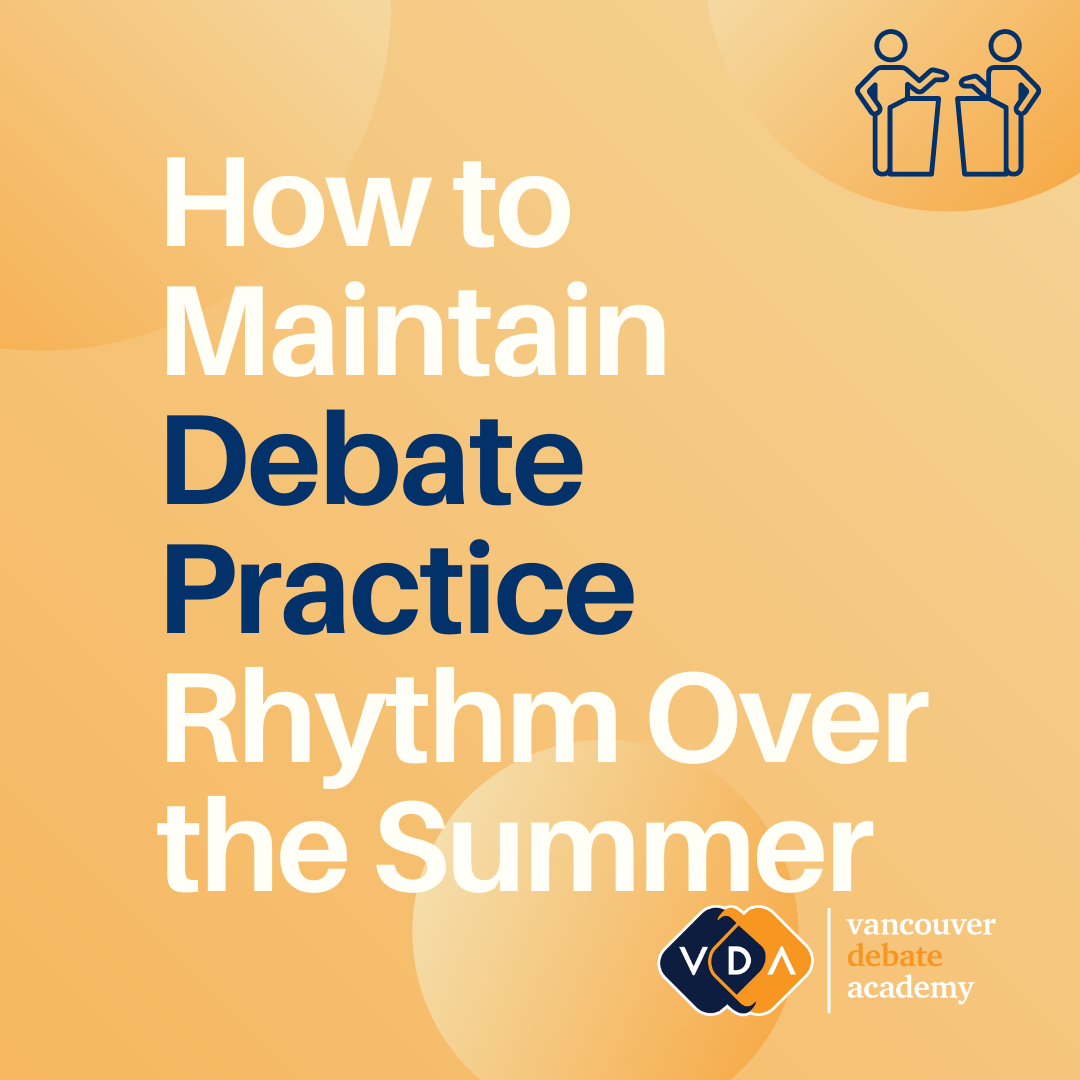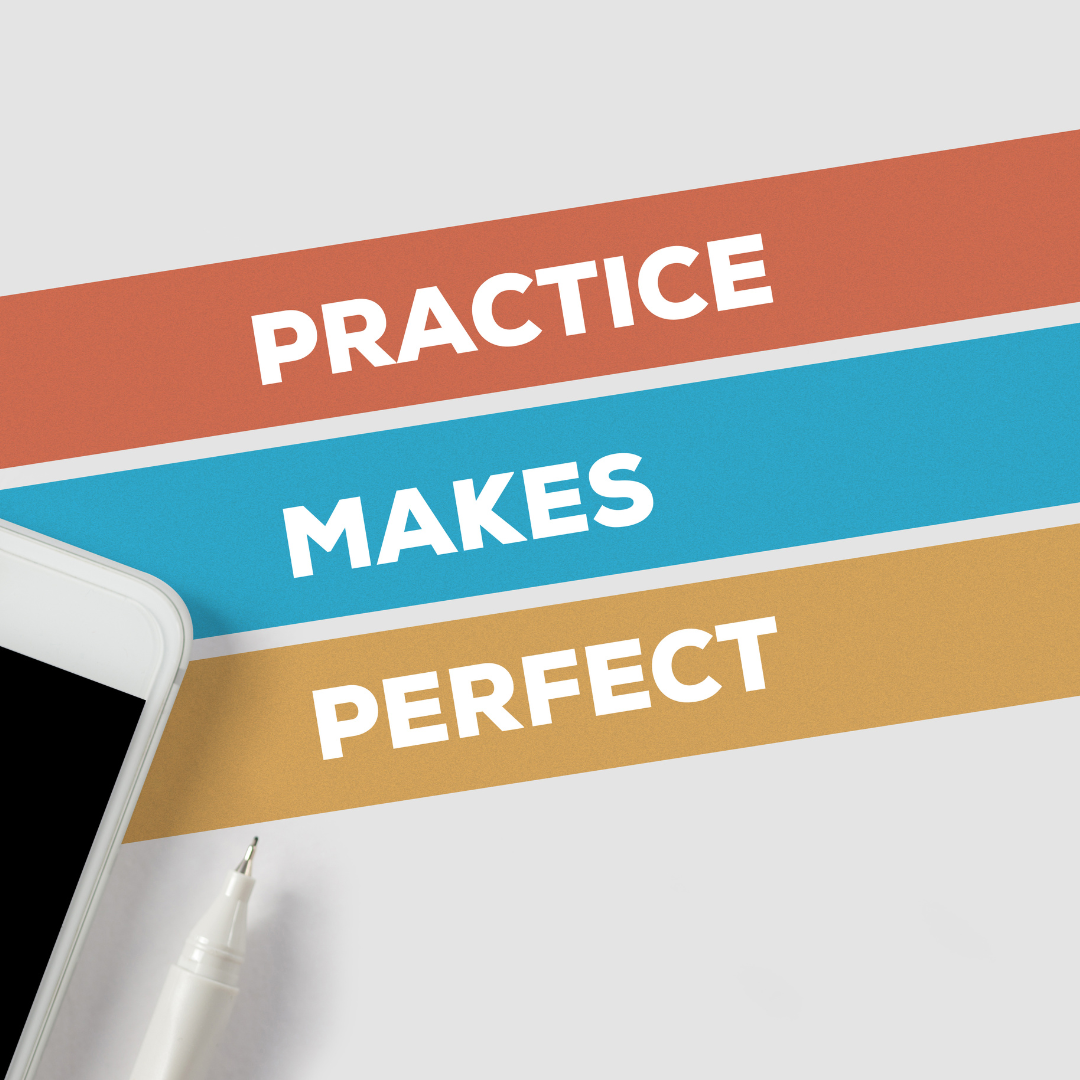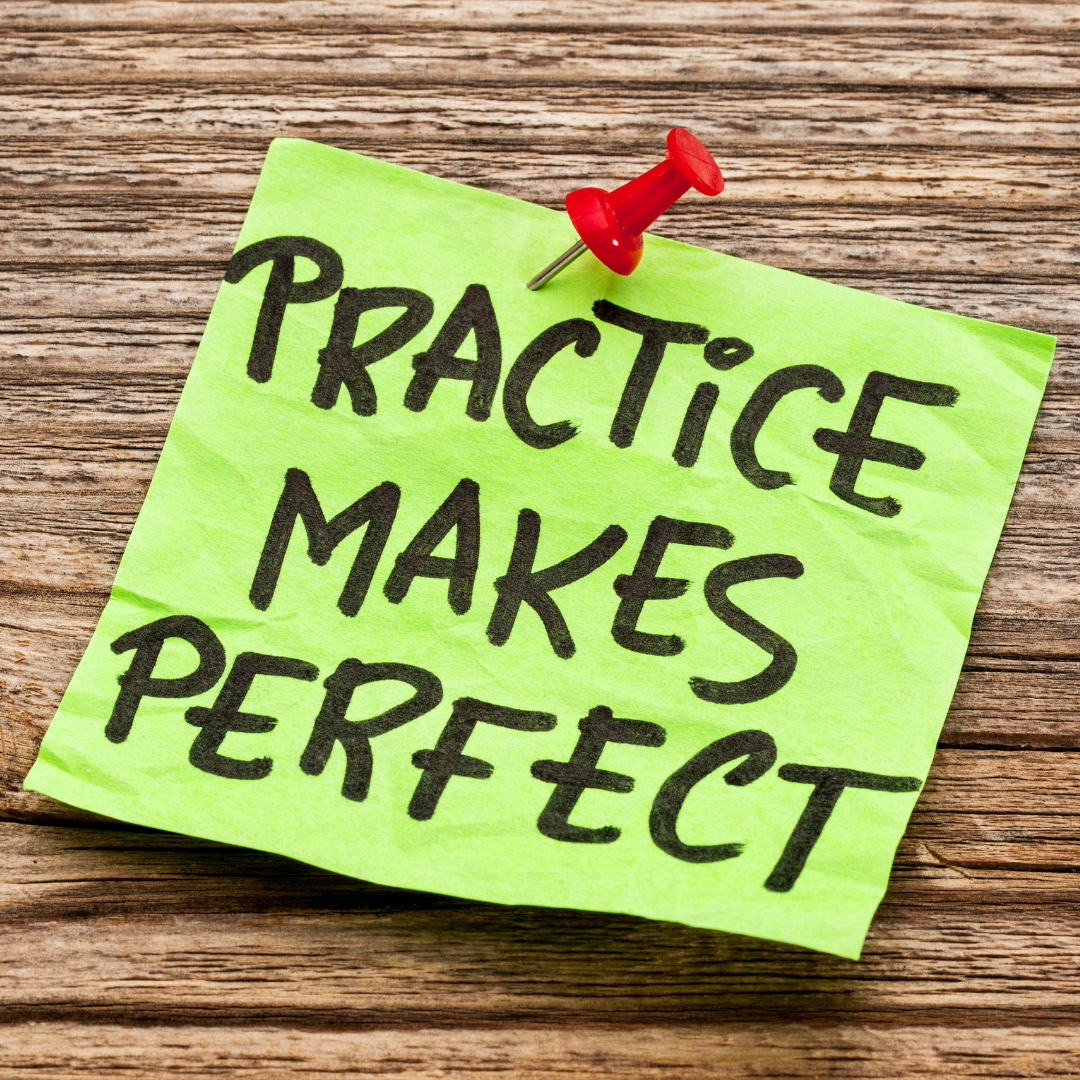How to Maintain Debate Practice Rhythm Over the Summer

Summer can be a frustrating time for high school debaters. Tournaments are scarce and classes are out of session, leaving you with the nagging feeling that your skills might be slipping. But fear not! Here are some tips to stay sharp and maintain your debate practice rhythm over the summer break.

Keep Debate on Your Mind
The key is to stay engaged with debate, even when formal practice opportunities are limited. Here’s a tiered approach for different learning styles, depending on how hardcore you want to be:
- Level 1: Passive Absorption – Immerse yourself in the world of debate by listening to it passively. We recommend going on YouTube and watching WSDC finals, or finals for other debate formats like BP or PF. You can use any “Youtube to MP3” site to download these as audio files, if you want. Treat debate rounds like podcasts while you’re on walks, doing chores, or in the car from one place to another. This will help you stay familiar with the structure of arguments and keep your mind in debate mode.
- Level 2: Active Flowing – Take things up a notch by actively taking notes while listening to practice rounds. Pay close attention to the flow of arguments – track who’s saying what and how they’re building their case. This will solidify your understanding of debate strategy.
- Level 3: Shadow Debating – Ready for an advanced challenge? Try shadow debating. Pause the video after a key point is made, formulate your response as if you were directly in the round, then unpause and see how the actual debater proceeds. Analyze the difference between your approach and theirs. This will hone your critical thinking and rebuttal skills, and feels the closest to participating in an actual debate.
Refine Your Past Performances
In addition to staying engaged with current debate content, take some time to analyze your own past performances. This is a fantastic way to identify areas for improvement and solidify your strengths.
- Note Refinement: Pull out your notes from past debates, both wins and losses. Look for commonalities in your arguments across both categories. Rewrite your notes— do you remember the feedback you got from your judges? Try to directly incorporate it into the same argument. Did they ask you to include clearer impacting? To be more comparative? Try a rewrite that fixes that. Then, try delivering the speech out loud – did the revisions make a difference? What would you further refine? This process will help you identify recurring weaknesses and areas where your arguments can be tightened, and keep debate on your mind when you can’t do as much actual debating.
Debate Your World
Finally, the most fun tip – weave debate practice into your social interactions in small ways!
- Debate Buddies: If you made friends in your debate classes, reach out to them over the summer. Hang out, talk about past tournaments, and engage in casual debates. It doesn’t have to be formal, and it’s often easier to actually do if it isn’t– watch a movie together and playfully argue over which character is the strongest (can Goku beat Superman?).
- Debate Anyone: Even if you don’t have debate-class friends, you can still find opportunities to practice your skills. As long as your friends are down with it, you can engage your non-debate friends in casual discussions. Turn everyday decisions into friendly debates – “Should we go to that new Italian place or try the ramen shop down the street?”

If you’re not up for anything too intense, just remember that any kind of practice at all is better than none. Even if it’s just in small ways, if you incorporate these tips into your summer routine, you can ensure that your debate skills stay sharp and you’re ready to hit the ground running when the season starts again. Have a great summer!

